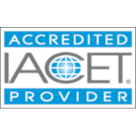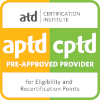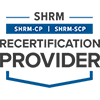Product Details
Topics Covered
- Mission and vision statements
- Business plans
- Choosing a board of directors
- Incorporating
- Bylaws and policies
- Filing for tax-exempt status
- State and local compliance
- Developing programs
- Recordkeeping
- Staff and volunteers
- Fundraising
Key Features
- Mobile-friendly
- Audio-enabled
- Badge and credit-awarding
- Real-world case studies
- Fully accessible
- Games & Flashcards
- Expert-supported
- Video content
Course Preview
Course Description
Learning Outcomes
- Articulate the advantages and disadvantages of starting a nonprofit organization
- List and describe the alternatives to a nonprofit structure
- Distinguish between a nonprofit organization's mission statement and its vision statement
- Explain the importance of a nonprofit's business plan, and list the elements that it should include
- Describe the different types of boards that a nonprofit may have, and the different strategies for recruiting new board members
- Explain the advantages and disadvantages of incorporation for nonprofits
- List the key steps in the incorporation process
- Explain the importance of an organization's formation documents and its organizational meeting
- List the steps involved in applying for 501 (c) (3) status
- Detail the actions needed to maintain compliance with federal, state, and local regulations
- Explain the process of program planning and development
- Explain the importance of organizational strategy, and describe the three major approaches to strategic planning
- List the types of records that a nonprofit is required to keep, and discuss the particular importance of IRS Form 990
- Describe how compensation packages for employees of a nonprofit differ from those of employees of a for-profit corporation
- List the types of insurance that a nonprofit organization should have
- Describe the different types of fundraising efforts that a nonprofit may undertake, and explain how these can differ depending on the size of the organization
Notes
This course has an "Ask the Expert" feature, which submits your questions directly to an expert in the field you are studying. Questions are answered as quickly as possible and usually within 24 hours.
As an Accredited Provider, MindEdge offers for its learning events that comply with the Continuing Education and Training Standard.
Learners must achieve an average test score of at least 70% to meet the minimum successful completion requirement and qualify to receive credit. Learners will have three attempts at all graded assessments.




